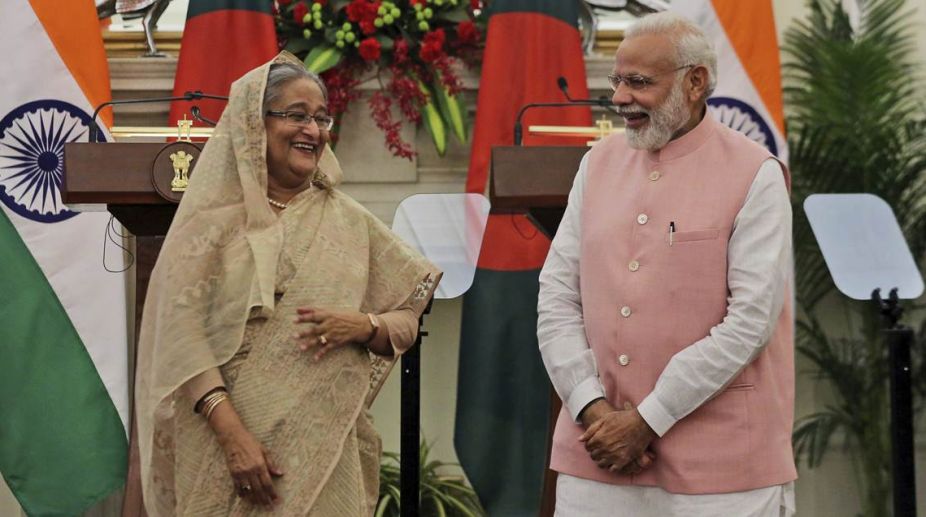Congress distances itself from Sam Pitroda’s remarks on inheritance tax after BJP attack
After Pitroda's remarks, the ruling BJP called the Congress party "property snatchers".

(Photo: AFP)
Bangladesh’s decision to take back 33 of its nationals, who have been labelled as infiltrators by foreigners’ trbunals in Assam, is the first of its kind and still more crucially reflects the upswing in the neighbour’s relations with India. Currently lodged in detention camps that dot the north-eastern state, the trek back of these migrants will doubtless impinge on the agitations both in favour and against the Citizenship Amendment Bill (2016) and the National Register of Citizens, the final draft of which is expected on 30 June.
The number might be deemed to be marginal in the larger perspective of illegal immigration, but it does knock the bottom of Begum Khaleda’s stand when the Bangladesh Nationalist Party was in office, specifically that there were no Bangladeshi nationals in Assam.
The formalities for transferring these 33 nationals have been finalised, and their deportation is likely soon, according to indications of the Assam police authorities. Suffice it to register that the authorities in Dhaka have responded to the claims and appeals of the Indian authorities ~ arguably a testament to the Modi-Hasina bonhomie. Considering that there is no repatriation or deportation treaty between the two countries, Dhaka’s willingness to “accept” its nationals has rightly been hailed by the present BJP government in Assam as a “goodwill gesture”.
Advertisement
It is fervently to be hoped, therefore, that this sense of “goodwill” will also get reflected in Bangladesh’s response to the persistent issue of illegal infiltration since the late 1970s… not merely in Assam but in the border states generally. Most particularly through West Bengal’s porous border with Bangladesh. It also raises the larger issue of fencing, which has only been partially executed. The problem has exacerbated over the past decade, specifically after the Congress-led UPA government at the Centre had in 2006 issued “citizenship cards” to both the fake and the genuine in the states bordering Bangladesh.
The decision to repatriate the 33 nationals comes after Bangladesh identified 152 of its nationals languishing in detention camps in Assam’s jails at Goalpara, Kokrajhar, Tezpur, and Silchar. There appears to be a palpable change of mood on the part of the Awami government in an election year not the least in the context of reports that the Bangladesh High Commission has proposed to the MEA that repatriation of illegal migrants be carried out “in batches”.
Altogether, the repatriation ~ as distinct from a “push-back of migrants ~ has been a carefully calibrated initiative. Beyond the findings of Assam’s foreigners’ tribunal, the addresses of the detainees were shared by both countries before the process of repatriation was finalised. Granted that a person declared a “foreigner” by the tribunal does not confirm that he is from Bangladesh, the vital parameter of “address verification” has this time been addressed by both countries in a rare instance of bilateral coordination, though it might be tempting to dismiss the figure of 33 as tokenism. It is welcome nonetheless.
Advertisement